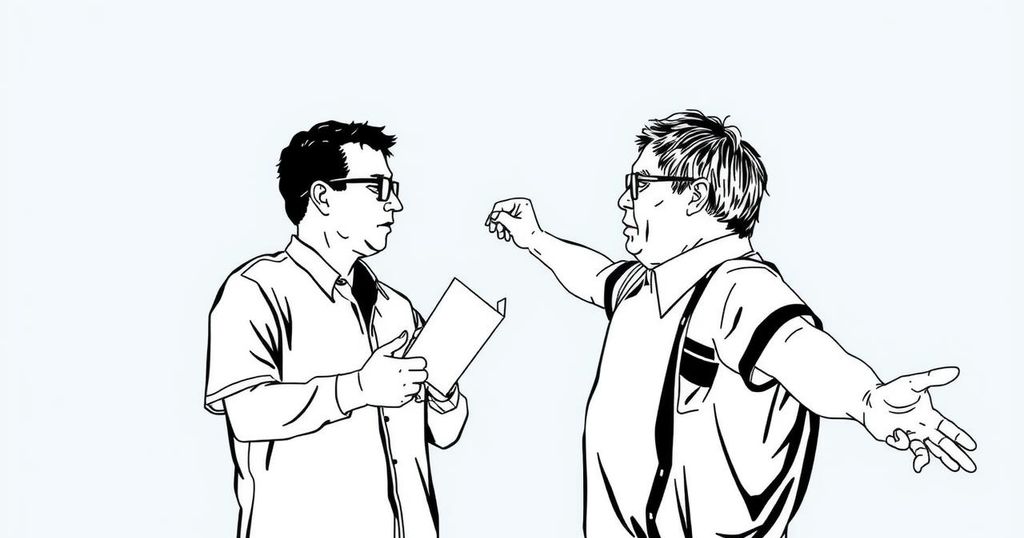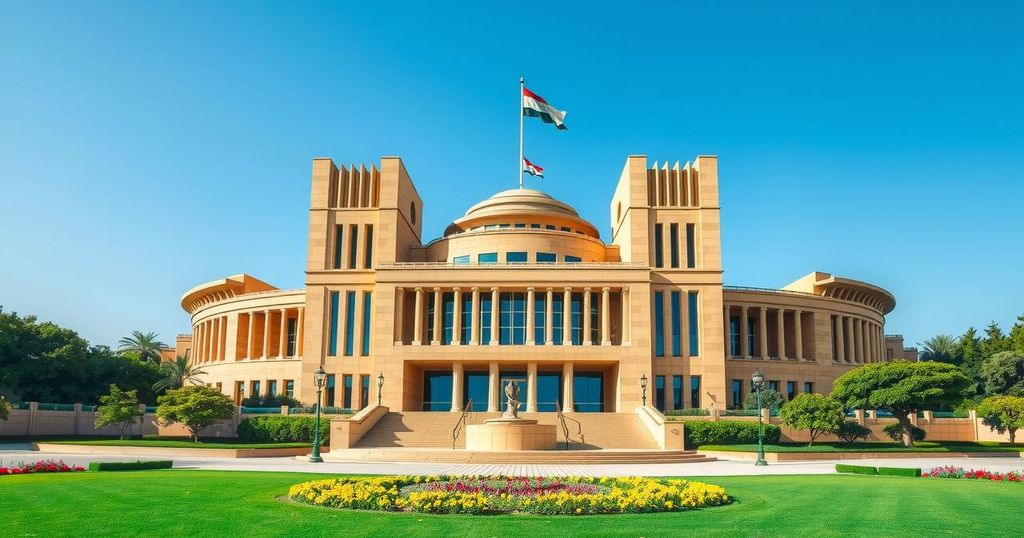Uruguay’s Pivotal Presidential Runoff: The Impact of Fringe Votes
Uruguay’s upcoming presidential runoff features centrist candidates Yamandu Orsi and Alvaro Delgado, with the outcome likely influenced by fringe votes from the first round. The politically moderate scenario is characterized by voters’ concerns over the cost of living and crime, where even a small number of votes can determine the winner.
On Sunday, Uruguayans will select their next president in a closely contested runoff between centrist candidates, opposition center-left mayor Yamandu Orsi and conservative candidate Alvaro Delgado. The outcome may hinge on the approximately 25,000 votes separating the two, particularly from those who supported fringe candidates like anti-vaccine activist Gustavo Salle in the first round. Salle’s unexpected 3% performance highlights how alternative candidates might influence the electorate’s decisions.
In a country of 3.4 million, where popular support for President Luis Lacalle Pou’s administration remains robust amid declining inflation and rising employment, voters are still grappling with high living costs and crime. Analysts indicate that the overall political climate suggests minimal appetite for radical change. Both main contenders, though differing in ideology, share common ground on key issues, making it challenging for them to galvanize popular support.
Neither candidate has significantly shifted their platforms in the days leading up to the election to attract the estimated 8% of voters drawn to lesser-known parties, complicating their attempts to gain traction. Salle, who gained two congressional seats from his party, refrains from directing his supporters towards either candidate, suggesting that Orsi may resonate more with voters concerned about issues like workers’ rights.
As the campaign nears its conclusion, the efficacy of direct appeals to voters is questionable. A lack of new proposals leading up to the election may see a diminishing voter turnout, which could inadvertently favor Delgado’s center-right coalition, tasked with consolidating support from those disenchanted by the current options.
The political landscape in Uruguay features a unique electoral dynamic, particularly in the current election year of 2024. The country is witnessing a rare centrist runoff between two candidates following a first round that saw significant support for fringe parties. This context underscores the potential for smaller party supporters to influence the outcome, especially in a nation where electoral turnout and vote spoiling are critical factors. The prevalent issues of living costs, inequality, and crime add layers of complexity to the electorate’s decision-making process.
In summary, the presidential runoff in Uruguay represents a pivotal moment influenced by voters’ sentiments towards fringe candidates and the performance of major parties. As both Orsi and Delgado vie for undecided voters, the outcome hinges on strategic appeals to different segments of the electorate. The election’s looming date emphasizes the importance of every cast vote, especially in a tight race where the balance of power remains precariously tipped.
Original Source: www.usnews.com




Post Comment